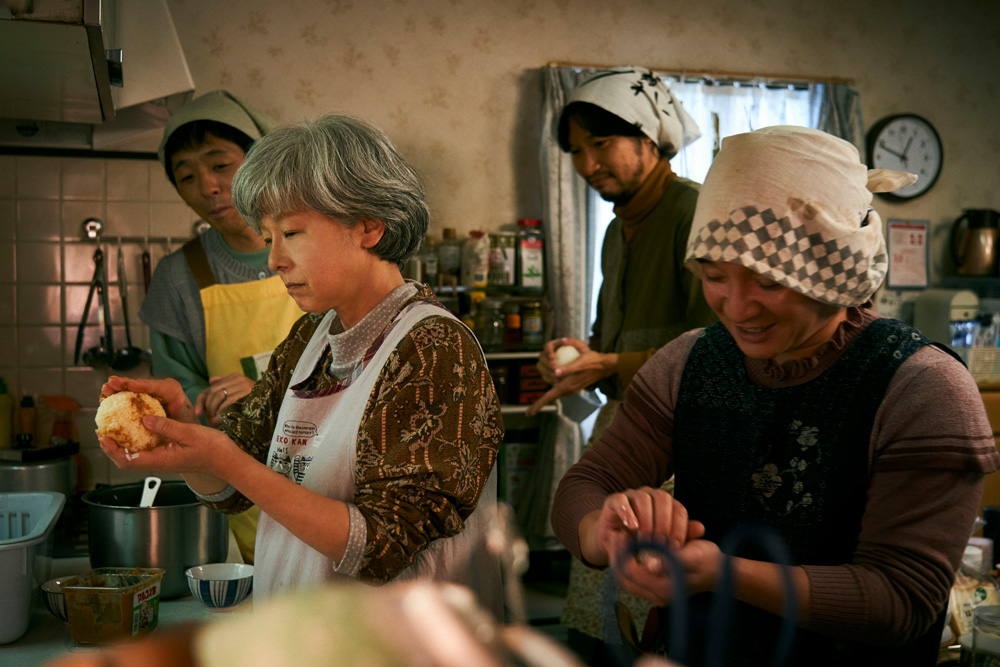!["Ora Ora de Hitori Igumo" Director Shuichi Okita I don't want to see "warm everyday life" (lol) [Director's Interview Vol.90]](https://cinemore.jp/images/d53c0ed47a37ca4009c3adb8b09ceaa782887ce7e999e6494fbfd1ee783045dd.jpg)
"Ora Ora de Hitori Igumo" Director Shuichi Okita I don't want to see "warm everyday life" (lol) [Director's Interview Vol.90]
Yuko Tanaka's first starring movie in 15 years is directed by Shuichi Okita. When I watched this movie, ``Ora Ora De Hitori Igumo'', which filled me with surprise and excitement all at once, I realized that it was definitely Yuko Tanaka's movie, and definitely Shuichi Okita's movie. In other words, it was the best. The usual Okita world is alive and well this time as well, making for an extremely entertaining movie. How can you make such an interesting movie? What was it like working with Yuko Tanaka? We spoke to Director Okita.
Index
- The script is about to turn his mother into a movie.
- I feel embarrassed when I play emotional music.
- Yuko Tanaka even composes a song when they meet for the first time
- Machiko Washio was really good.
- Norifumi Ataka's art creates the atmosphere of Okita's films
- I don't want to see "warm everyday life"
- I watched ``The Waterless Pool'' without telling my family.
The script is about to turn his mother into a movie.
Q: Please tell us how you got involved in this work.
Okita: Producer Takeuchi of Asmik Ace asked me if I would be interested in turning his novel `` Ora Ora de Hitori Igumo '' into a movie. That's when I first started reading the original work.
Q: What was your impression after reading the original work?
Okita: There are so many dialects that it was difficult to get used to at first. I think it would be difficult to make a movie out of the content.
Q: Director Okita himself wrote the script for the content that would be difficult to make into a movie. How did you go about creating the script?
Okita: The story is about an old woman, Momoko, who is alone at home and is having a conversation with herself in her heart, and the first challenge was figuring out how to show that as a movie. At first I was half disappointed (lol).
Moreover, in the original work, the person with whom the dialogue occurs is described as a "soft hair protrusion", and if it were to be made into a movie, it would probably be CG, but I don't think that feels like my movie (lol). But in the end, it's a dialogue, so I thought it would be better to have people acting and having the conversations instead of using CG, so when I started writing the script, the dialogue became the main focus. I was able to move on from there.

Q: I think replacing the "soft trichomes" with people would be a major change from the original work, but how did you discuss this with the original author, Chisako Wakatake?
Okita: There was one other major change, and we incorporated a lot of my mother's story. My mother came from the Tohoku region and lives alone in the Kanto area, so she is very similar to Momoko, including her home environment. I wrote the script with such vigor that I was able to turn My Mother into a movie.
So, many of the episodes that appear in the movie are actually stories about my mother. We do tai chi, we play the Taisho qin, the car dealership comes to visit, the police come to complain, etc. It's all part of our story.
As I wrote the script, there were many parts that differed from the original, and I thought people would get angry about it, but Wakatake-sensei said, ``Please feel free to do whatever you want.'' It was.
Q: Were there no correction instructions from Mr. Wakatake at all?
Okita: I was wondering if something would be said about Loneliness 1, 2, 3 (played by Gaku Hamada, Takataka Aoki, and Kankuro Kudo in the movie), who are anthropomorphized soft hair projections. , I didn't say anything at all and was completely left in charge. So, I wanted to make the film my own, so I continued to work on the script.
Q: Mr. Wakatake, what impressions did you have after seeing the completed movie?
Okita: He was very happy and said, ``You've read a lot of the original work.'' Although I intended to deviate from the original work quite a bit, the lines used and the core theme remained the same, so I think the important points from the original work were successfully adapted into the film.

